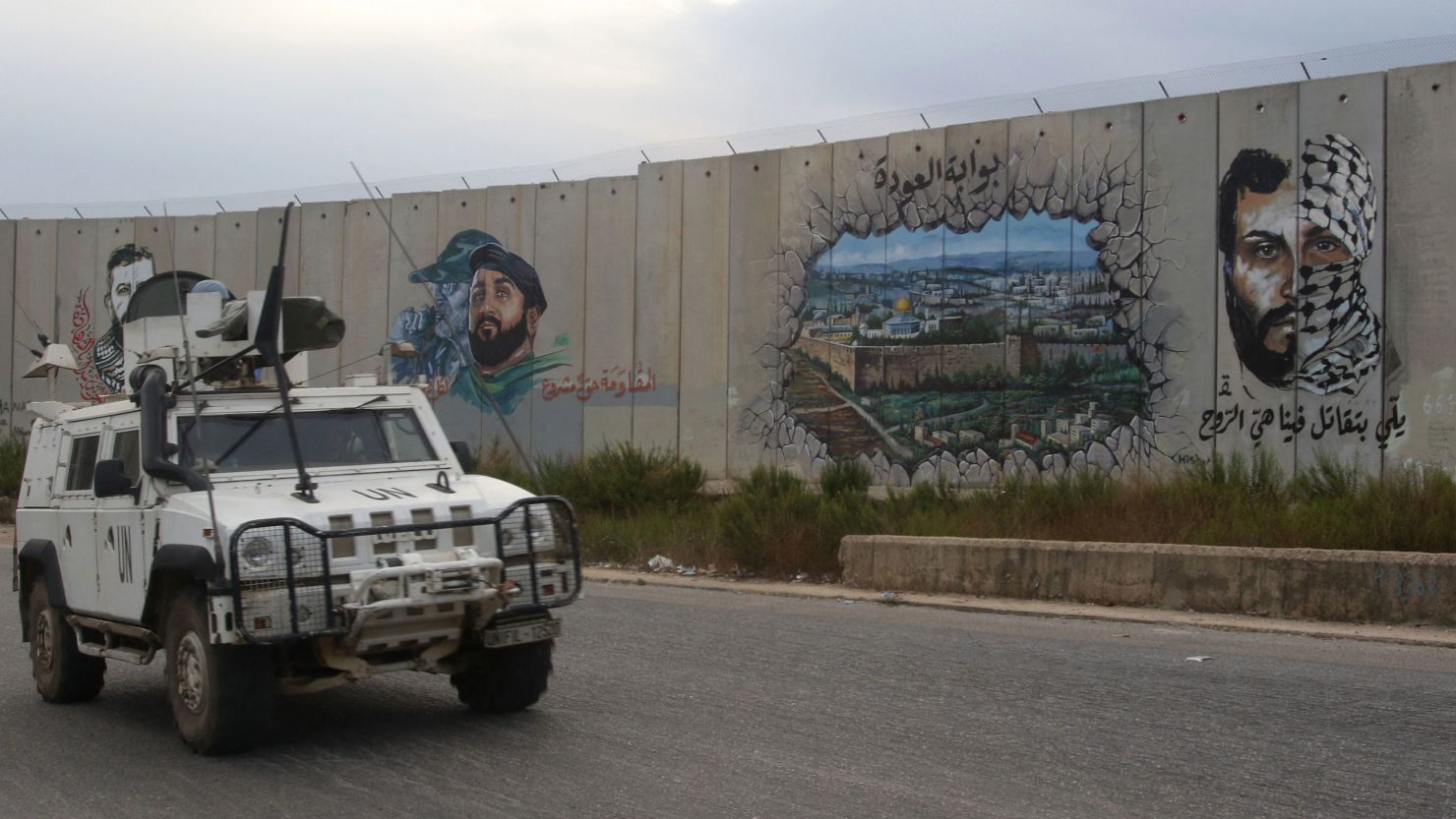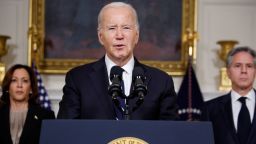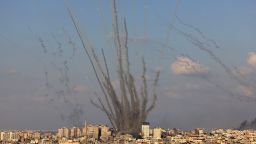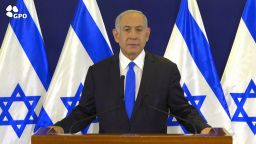The US and its allies are warning the Lebanese militant group Hezbollah against escalating the conflict in Israel as the US prepositions military assets to deter a potential widening of the war, multiple US officials and people briefed on the discussions tell CNN.
Senior administration officials do not believe at this point that Hezbollah is likely to join Hamas’ war in force against Israel, and officials think the warnings are having an impact even though there have been some escalation on the border.
Chairman of the Joint Chiefs of Staff Gen. Charles Q. Brown said on Wednesday that he has not seen “any indications of additional players” preparing to “get involved” in the conflict in Israel.
The US is sending the message to Hezbollah to stay out of the conflict through a number of channels, including the Lebanese government and the Hezbollah-allied Speaker of Lebanon’s Parliament, Nabih Berri. Berri was mentioned by administration officials briefing Congress on Sunday as a go-between, according to a person familiar with the briefing. The US won’t officially engage with what has been designated a terrorist group, so Berri is one natural conduit.
France has also conveyed to Hezbollah, at Israel’s request, that they must stay out of the war and not escalate further or Israel will respond significantly, a source briefed on the talks said. Those discussions were also coordinated with the US, the source said.
“Western allies who have informal ties with Hezbollah have conveyed some messages,” a Western diplomat confirmed, adding that the response by Hezbollah indicated “the pre-existing will of Hezbollah not to escalate for now.”
A senior defense official said Monday, “We are deeply concerned about Hezbollah making the wrong decision and choosing to open a second front to this conflict,” adding: “We are working with Israel and with our partners across the region to contain this to Gaza.”
Hezbollah is a highly trained, well-armed and sophisticated military force that also receives Iranian support, so its entry into the conflict would mark a significant escalation. But current and former senior officials don’t believe Hezbollah is eager to join the war, largely because the risks for the group would outweigh any potential rewards.
On top of the messaging from US officials to urge Hezbollah to stay out of the conflict, Secretary of Defense Lloyd Austin ordered the deployment of a carrier strike group to the eastern Mediterranean in large part as a message to Hezbollah and its Iranian backers to refrain from entering the war.
“Let me be clear, we did not move the carrier for Hamas,” national security adviser Jake Sullivan told reporters at the White House on Tuesday. “We moved the carrier to send a clear message of deterrence to other states or non-state actors that might seek to widen this war.”
President Joe Biden reinforced that message in remarks on Tuesday from the White House.
“Let me say again, to any country, any organization, anyone thinking of taking advantage of the situation, I have one word: Don’t. Don’t. Our hearts may be broken, but our resolve is clear,” he said.
Analysts say Hezbollah support for Hamas has been symbolic so far
Hezbollah has congratulated Hamas on Saturday’s massive attack. It has also exchanged some rocket fire across the border with Israel – including rockets fired into Israel on Tuesday – but those attacks appear to be symbolic gestures of support rather than a precursor to serious military action, analysts said.
Additionally, the Lebanese economy is in free-fall and a destructive and bloody war between Hezbollah and Israel would only damage that economy further – and as a result would be a huge political risk for Hezbollah, which holds seats in the Lebanese parliament and claims to represent all Lebanese people as a significant political entity.
Still, the Israel Defense Forces (IDF) has already bolstered its presence along the border with Lebanon to address the potential threat, adding tens of thousands of additional troops after clashes in the disputed region, according to IDF spokesperson Lt. Col. Jonathan Conricus.
On Wednesday, violence flared again, with Israel striking inside Lebanese territory after anti-tank missiles were launched at an IDF military post near the Lebanese border. Hezbollah said it fired on an Israeli site with “guided missiles” in response to the killing of three of its members on Monday.
The group also provides some passive military support, by drawing and holding Israel’s troops to the northern border and splitting Israel’s missile defenses, said Mike Knights, a senior fellow at the Washington Institute who specializes in Iran-backed proxy groups.
“Logic would tell you that if you’re Lebanese Hezbollah, you want to stay out of this conflict,” Norm Roule, a former national intelligence manager at Iran for the CIA, told an intelligence conference over the weekend. “You want to let the Israelis and Hamas chew themselves to ribbons and then you are the strong person standing.”
Hezbollah is not particularly invested in Gaza’s fate, former CENTCOM Commander Frank McKenzie told CNN on Tuesday.
“I think more likely than not, you’ll see little things up there in Lebanon, as we’ve seen, small scale attacks back and forth – enough to satisfy honor on both sides,” McKenzie said. “But one thing [Hezbollah’s leader Hassan] Nasrallah knows is, if he comes in, the Israelis will come north and they’re gonna hammer the sh*t out of him. They’re gonna hammer the sh*t out of him just like they’re fixing to hammer the sh*t out of Gaza.”
Still, Roule said, the US should have “some humility” about making firm assessments about the risk of the conflict spiraling beyond Israel’s borders.
Hezbollah’s calculus could change if it perceived that Israel has been significantly weakened – either politically or militarily, as its response to the attack unfolds, McKenzie and Knights told CNN.
“There’s this possibility that if Israel gets stuck in Gaza … then, at that point, we could see Lebanese Hezbollah get tempted,” said Knights.
For now, though, Knights said that Hezbollah is “communicating with the Lebanese people to say, ‘we’re trying here not to draw us into a war.’”
“That tells you something about them,” Knights said. “They are hesitant to mortgage their entire future on this.”






